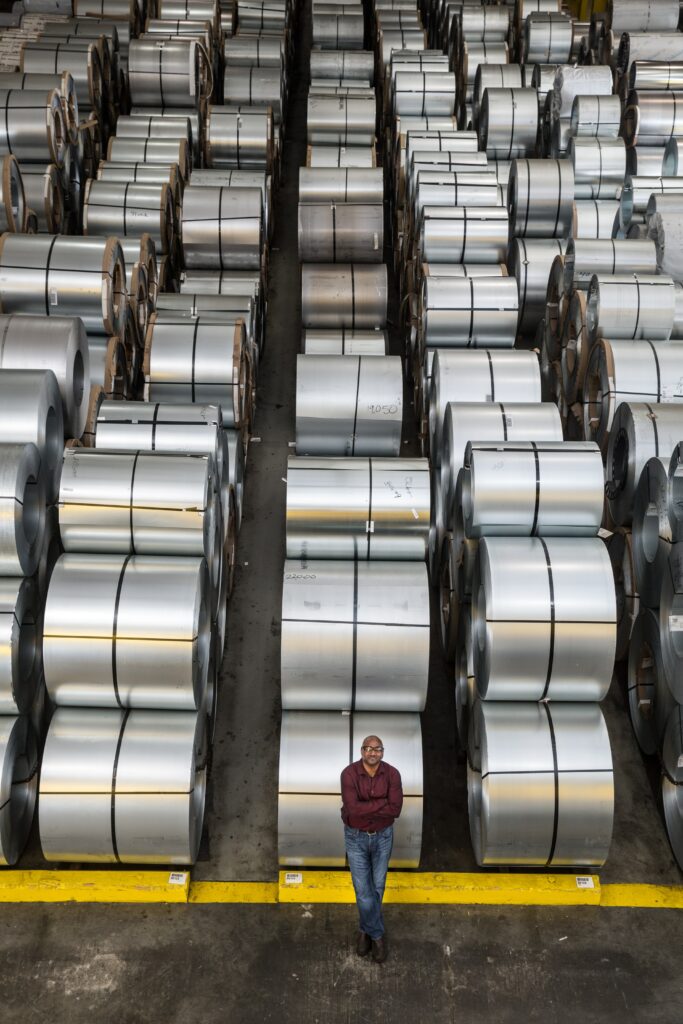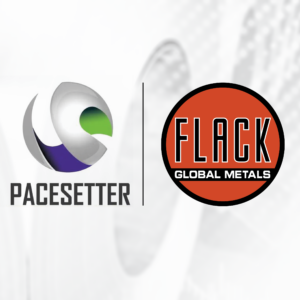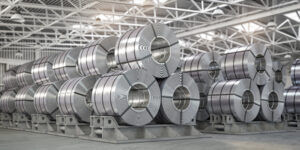There are many types of stainless steel grades, and each one has a unique set of properties that make them suitable for different applications. Some of the most common stainless steel grades include 304, 316, 409, and 430.
But what distinguishes stainless steel grades from one another? Let’s dive in.
Types of Stainless Steel
First, let’s discuss the main types of stainless steel. There are four different ones:
- Austenitic stainless steel: the most common type and are a good choice for general use. They are non-magnetic and have high levels of corrosion resistance.
- Ferritic stainless steel: magnetic and not as corrosion resistant as austenitic stainless steels, but they are stronger and cheaper.
- Martensitic stainless steel: hard and corrosion resistant, but they can be sensitive to thermal and mechanical treatment.
- Duplex stainless steel: made from two types of stainless steel — austenitic and ferritic.
-
Precipitation-hardening stainless steel: Can be hardened by heat treatment and is often used in aerospace applications.
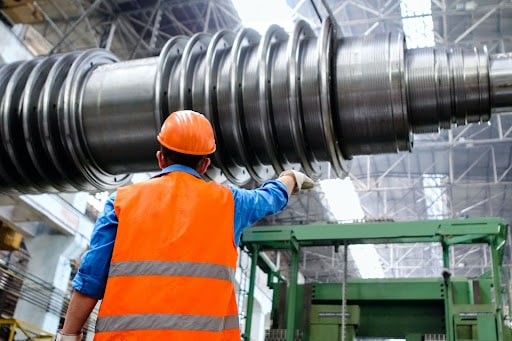
Uses of 304 Stainless Steel
Grade 304 Stainless Steel is a versatile alloy that has a wide range of applications. It’s a non-magnetic, chromium-nickel austenitic stainless steel that offers good corrosion resistance and strength. It’s commonly used in food and beverage applications, as well as in the manufacture of medical devices and surgical instruments.
304 stainless steel can be heat-treated to increase its strength and hardness. It’s also easy to weld and fabricate. This alloy is ideal for applications that require a high degree of corrosion resistance.
Uses of 316 Stainless Steel
Just like 304, 316 is austenitic. 316 stainless steel is a versatile material that has a wide range of applications. It’s a corrosion-resistant form of steel that is ideal for use in harsh environments. 316 stainless steel is also non-magnetic, making it the perfect choice for applications that require a low magnetic signature.
316 stainless steel is used in a variety of industries, including marine, aerospace, and medical. It can be found in products such as valves, pumps, fasteners, and medical implants. 316 stainless steel is also used in the food and beverage industry, where its corrosion resistance and low magnetic signature make it ideal for use in sterile applications.
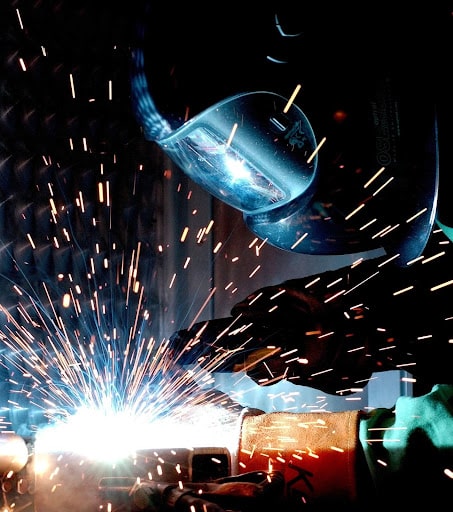
Uses of 409 Stainless Steel
409 stainless steel is a ferritic stainless steel alloy with a chemical composition of Cr-11.5% Ni-0.08% C. It has good corrosion resistance in mildly corrosive environments and is used in applications such as food processing equipment, pharmaceuticals, and chemical production equipment. 409 stainless steel also has good formability and weldability, making it a versatile alloy choice for many manufacturing applications like aircraft parts, chemical equipment, food processing equipment, and instrument parts
Uses of 430 Stainless Steel
430 stainless steel is a ferritic stainless steel that contains chromium and nickel. It has good corrosion resistance and formability. It’s used in a wide variety of applications, including food processing, chemical production, and architectural trim.
430 stainless steel is a lower-cost option compared to other grades of stainless steel. It has a similar composition to 304 stainless steel, this makes it less resistant to corrosion and formability.
Steel Processing Services
Once you’ve chosen your grade of stainless steel, there are several processes to pick from. At Pacesetter, we offer the following services.
- Slitting
- Blanking
- Cut-to-length
And we offer toll processing as well for customers who have their own materials.
Steel Finishing Services
For stainless steel projects with an aesthetic purpose, we offer several finishing services to bring your vision to life. These include:
Get A Quote Today
If you need stainless steel for your next project, contact our experts today. We’ll discuss your project needs and provide you with the best quote for our stainless steel products. We offer a variety of steel processing services, including slitting, blanking, cut-to-length, and toll processing services. And we emboss, prepaint, or fabricate steel to your exact specifications. Pacesetter is your steel expert.

